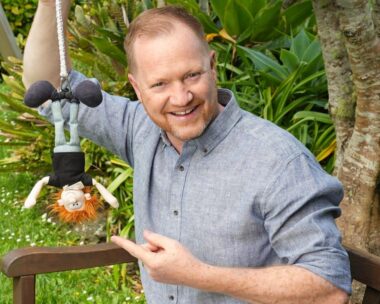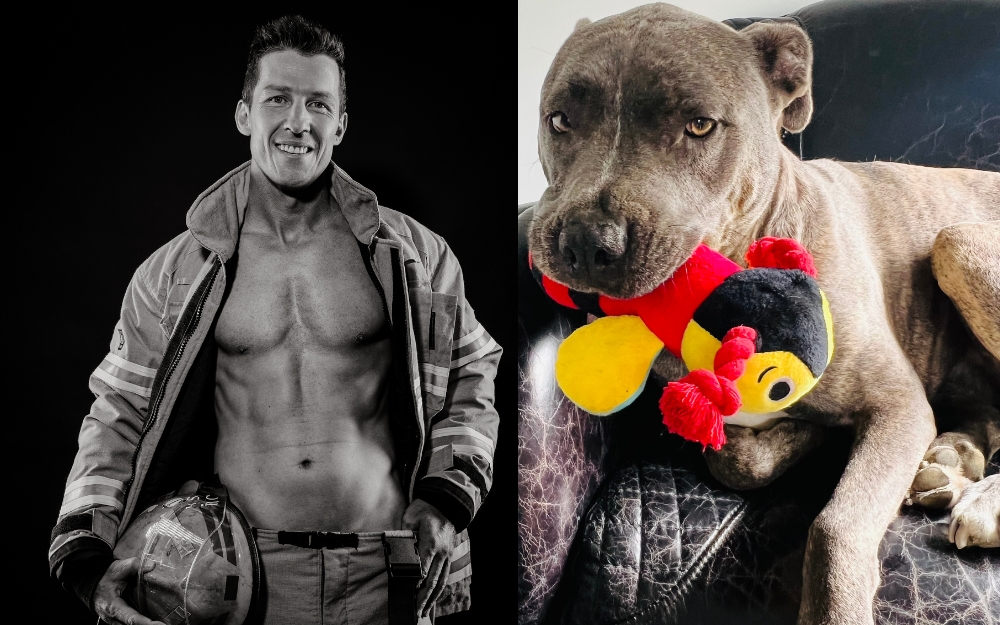Debbie Smith has chronic fibromyalgia. She lives with pain every day. Her partner, 81-year-old Murray Taylor, has Parkinson’s disease.
Since the violent 7.8 magnitude earthquake struck Kaikoura, North Canterbury and Wellington on November 14, the couple, who live in South Bay, have had to wash in the sea and collect rain water to drink. Their toilet is a 20L bucket set up in the woodshed. Internet access is intermittent and cellular service hit and miss.
In other words, they’re doing it tough.
Yet talking to Debbie a few weeks on from the big shake, she’s more worried about the neighbours – the “elderly couple” she and Murray helped evacuate on the night of the quake, the others who don’t have petrol or diesel and are “running on the sniff of an oily rag”, and would find it extremely difficult to get out if there was another emergency.
Debbie (56), a former lab technician, moved to Kaikoura from Oxford, England, seven years ago. Her fibromyalgia is the result of a serious car accident in 2002, which left her with nerve damage to her neck and spine. Murray was her neighbour – they became friends and later moved in together.
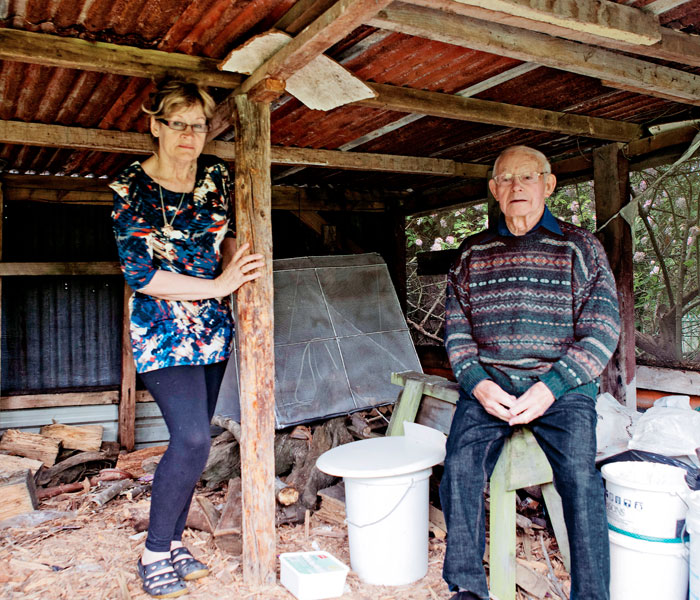
Their house is just across the road from the beach. On the night of the earthquake, she was on the couch. She remembers holding on to one of the couple’s two dogs and also trying to cling to a door jamb.
“What got me was the noise,” she recalls. “There was a sound like crashing water amongst the jolting and rumbling.
“I remember the temperature dropping – although that could have been me going into shock – and a really intense sound like rushing water. I was waiting for the timber to splinter and rocks to come crashing through.”
Stumbling through the house in the dark and stepping over debris and broken glass, she managed to find Murray’s medication and grab two days’ worth before heading back out to the car and driving to the neighbours’, then following them to higher ground.
While their power was back on within 24 hours, they still have water supply issues and no sewerage.
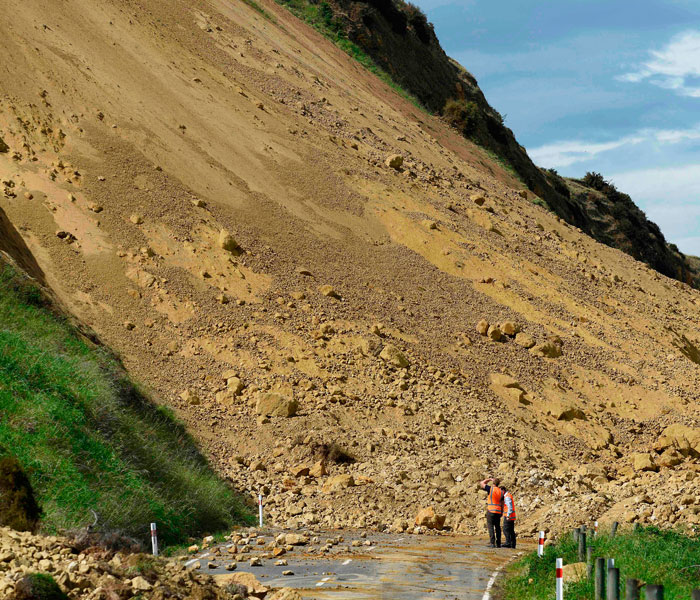
“The water cylinder was damaged so we salvaged the water from that. We’re using a bucket with a seat on it as a toilet. It’s in the woodshed next to the centre bracing pole, so there’s something to hang on to if there are any shakes,” she tells.
Sea water is collected in a bucket for “general washing”, while fresh water – some of it collected in ice-cream containers during a recent downpour – was rationed for drinking and cleaning their teeth. The discomfort was nothing compared to what others were facing, Debbie tells.
“We’re on limestone so we haven’t suffered as much damage as elsewhere, and at least the road is driveable.”
Story continues after video
Debbie was quick to praise emergency services and volunteers as well as the individuals and businesses that had provided assistance, including the Protranz team who had travelled overnight in the dark on the inland route from Christchurch to bring in water and fuel.
“Folk have been amazing. Communication has been a problem, but you can’t expect miracles.
“It’s early days – we’ve been crippled with being semi isolated because of the slips and the munted roads, but most people are just trying to get back to some sort of normality. It’s easy to be idealistic, but reality is a whole different ball game.”
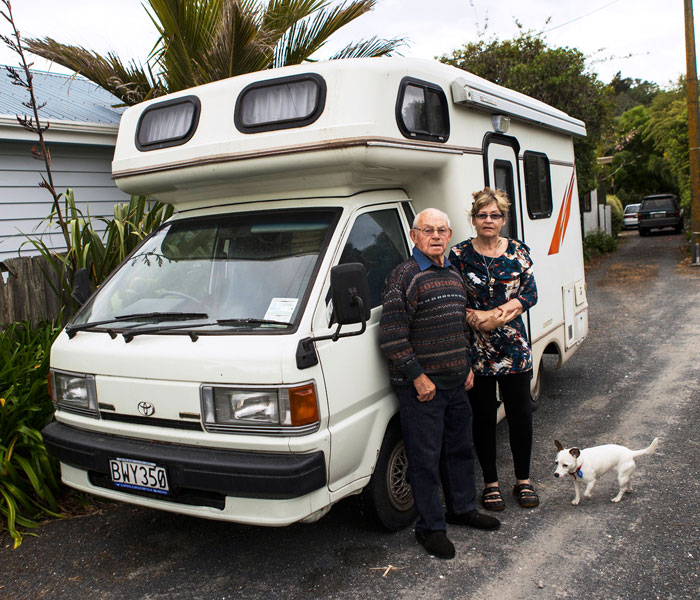
She was concerned the quake could spell the end for some.
“I imagine it’s going to take years for Kaikoura to get back on its feet. Small businesses in particular, they’ll suffer.”
However, she and Murray have no plans to leave – “Mother Nature’s going to do her thing regardless,” says Debbie.
Do you need help?
For those affected by the quakes, it’s a stressful, unsettling time. There are many organisations and individuals available to help in a variety of different ways – so don’t be afraid to put your hand up to ask for assistance.
• A 24/7 Earthquake Support Line is being run by the National Telehealth Service for anyone who needs support or is concerned about how the situation is affecting them or their family. For support and advice, call 0800 777 846.
• Your employer may also be able to offer assistance through the Employee Assistance Programme (EAP) – do ask your employer for more information.
• Other useful organisations include Victim Support, who offer a 24/7 helpline on 0800 842 846 or Heathline on 0800 611 116 (also a 24/7 service).
• If your children or grand-children are experiencing difficulties, head to skylight.org.nz or call 0800 299 100 for confidential, helpful support.
• Finally, ensure you’re kind to yourself and to those around you. Healing from a traumatic event can take a significant amount of time, plus the journey we take and the timetable for healing can be dramatically different from person to person.
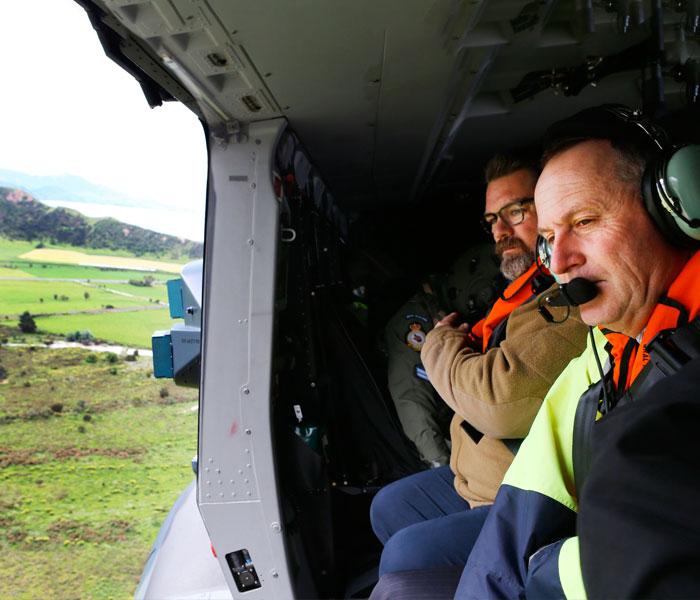
How you can help
If, like most Kiwis, you’re looking for ways to help out families in need who have been affected by the earthquakes, we have a few tips:
• There are several Givealittle pages set up for families online where you can donate – go to givealittle.co.nz. Or, make a donation to the NZ Red Cross 2016 Earthquake Appeal. You can do so online at redcross.org.nz or text “RED CROSS” to 3181 to donate $3. The donation will either be charged to your Vodafone account or deducted from your Prepay balance.
• Civil Defence Emergency Management Groups continue to ask that people do not donate goods at this stage and instead donate to relief funds.
“We know that donating goods seems like the right thing to do, but often the donations don’t match what communities need,” says director Stuart Black. “Monetary donations are still the most useful as they ensure organisations can provide what is really needed to those affected. If businesses or individuals have non-perishable goods they wish to donate please get in touch with local authorities first for advice.”
• If you still feel like you’d like to do more, or you’re not in a position to be able to donate financially, contact your local authority or Red Cross to find out if they need volunteers to fundraise in your local area.
If you have family, friends or loved ones in the area, do keep in touch to check on their situation.
Words: Julie Jacobsen

